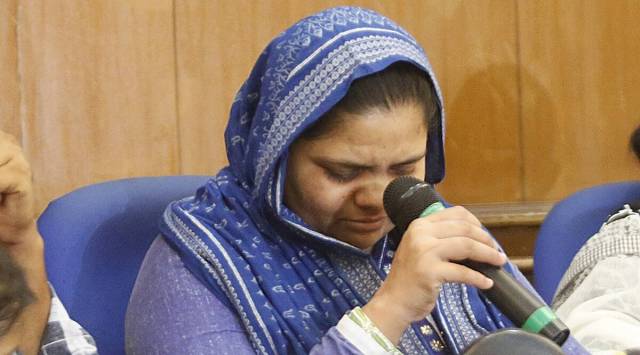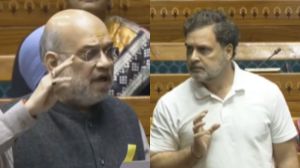Gangraped during the riots when she was pregnant, and her three-year-old daughter among 14 killed by a mob, Bilkis had filed another petition last month, challenging the release of the 11 men following the remission of their life sentences. That writ petition is pending, and will likely be heard after the Court reopens afte the winter recess.

The bench of Justices Ajay Rastogi and Vikram Nath, in an order dated December 13 which was made available Saturday, said, “In our opinion no case for review is made out. The review petition is accordingly dismissed.”
Referring to four Supreme Court judgments cited by Bilkis, the bench said, “We have perused the review petition as well as the connected papers in support thereof and the judgements referred to by the review petitioner.”
“In our opinion, there appears no error apparent on the face of record, which may call for review of the judgement dated 13th May, 2022 and as regards the judgements on which the reliance has been placed, none of the judgements are of any assistance to the review petitioner,” the bench stated.
On May 13 this year, the Supreme Court, hearing a plea by Radheshyam Bhagwandas Shah, one of the convicts in the case, asked the Gujarat government to decide within two months his application seeking “premature” release from prison where he had spent more than 15 years.
The ruling relied on the Supreme Court’s 2010 decision in State of Haryana Vs. Jagdish where it had said that “the application for grant of premature release will have to be considered on the basis of the policy which stood on the date of conviction” and accordingly held that the “policy (for remission) with which the petitioner has to be governed, applicable in the State of Gujarat on the date of conviction, indeed is” the one “dated 9th July 1992”.
Story continues below this ad
In her review petition, Bilkis said that the convict on whose plea the Supreme Court had given the May 13 order had not made her party to his plea and as a result, she had absolutely no information about the filing or pendency of his petition and the court order following which the state government took the decision to release the 11 convicts.
Contending that the Gujarat government’s decision to release them early suffers from non-application of mind, she said the convict had withheld “relevant facts and aspects of vital importance” from the Supreme Court, including the nature of the crime and her name.
She said the language of the law was unambiguous that the appropriate government to decide matters of remission was the state where the accused was convicted and sentenced, and not the state where the crime was committed or the accused belonged to.
Pursuant to the Supreme Court ruling, the 11 convicts were released on August 15 this year.
Story continues below this ad
ExplainedDebate over who decides
At the heart of the Bilkis review petition was the debate over which state gets to decide the remission prayer of the convicts. Gujarat where the offence was committed or Maharashtra where the offenders were convicted? The May 13 order, and the dismissal of the review plea, make it clear that the Gujarat government is the appropriate authority in this case.
This was challenged in the Supreme Court in two petitions – one by CPM leader Subhashini Ali, journalist Revati Laul and academician Roop Rekha Verma, and another by Trinamool Congress MP Mahua Moitra. The petitioners argued that the remission was granted by the state without the sanction of the Union government.
In response, the Gujarat government told the Court that the Union Home Ministry had in July this year approved its decision to accept the request for premature release of 11 convicts in the Bilkis Bano case under its 1992 remission policy.
The state also submitted that the Superintendent of Police, CBI, Special Crime Branch, Mumbai and the Special Civil Judge (CBI) City Civil and Sessions Court, Greater Bombay, had in March last year given opinions against their release. The civil judge was also of the view that the Maharashtra government policy of April 2008 should apply in the case because the trial was conducted in Mumbai, it said.
The state said it had considered the opinion of seven authorities – Inspector General of Prisons, Gujarat, jail superintendents, jail advisory committee, District Magistrate, Superintendent of Police, CBI, Special Crime Branch, Mumbai and Sessions Court, Mumbai (CBI) – before arriving at its decision to accept the request for premature release. Five had given a positive opinion about the request for release, the state pointed out.









